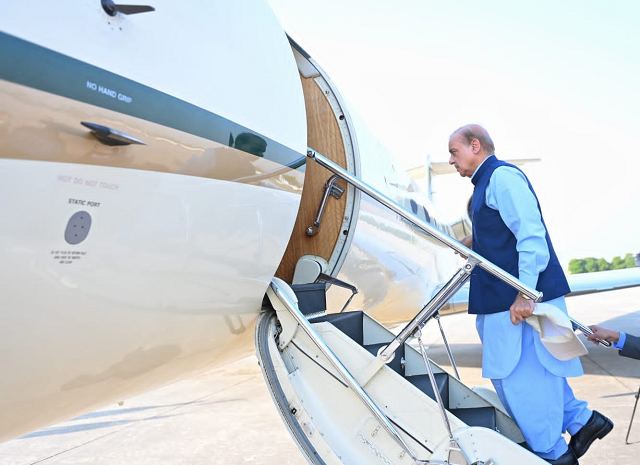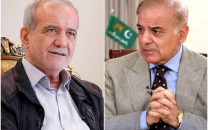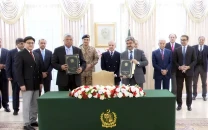PM to visit UAE on Jan 10 amid economic crunch
COAS, Bilawal likely to join Shehbaz to muster up support for the declining economy

Prime Minister Shehbaz Sharif will travel to the United Arab Emirates (UAE) on January 10 on a visit as part of a desperate attempt by Pakistan to shore up its depleting foreign reserves.
Official sources confirmed to The Express Tribune on Sunday that the premier would fly to the UAE on Tuesday after his return from Geneva. He will be accompanied by Foreign Minister Bilawal Bhutto Zardari, sources added.
Read Pakistan’s economic Catch-22: does the govt have a plan?
It is expected that Army Chief General Syed Asim Munir, who is already on a trip to Saudi Arabia and the UAE, will join the PM in talks with the rich Gulf state.
The PM will be in Abu Dhabi on the last day of Gen Asim's trip to the UAE. As per the Inter-Service Public Relations (ISPR), the army chief is undertaking a visit to Saudi Arabia and the UAE from Jan 4 to Jan 10.
Though details are not yet clear about what compelled PM Shehbaz to travel to the UAE, it is believed the visit is linked to the worsening economic crises in Pakistan.
The country’s forex reserves held by the central bank yesterday fell to $4.5 billion - hardly enough to finance 25 days of imports - after Pakistan returned over $1 billion in loans to two foreign commercial banks. This, however, has been denied by Finance Minister Ishaq Dar who said that Pakistan’s foreign exchange reserves currently stand at $10 billion as $6 billion held by commercial banks also belong to the country.
The minister made the remarks on Saturday while talking to a private news channel and maintained that Pakistan's due debts are being returned on time and the country’s forex reserves will “stabilise again very soon”.
Nonetheless, it is pertinent to mention here that the economic activities in the country have already been severely affected due to depleting reserves, devaluation of local currency and non-opening of letter of credits (LCs) for private companies.
Read More PTI’s white paper paints ‘bleak’ economic picture
It is expected that Pakistan and the International Monetary Fund (IMF) will hold a discussion next week for the completion of the pending ninth review of the programme.
With the IMF programme hanging in balance, the beleaguered coalition government is desperately seeking help from Pakistan's friends.
In the past, China, Saudi Arabia and the UAE have helped Pakistan in averting potential sovereign default and yet again, it appears Pakistan is turning to them.
In addition to the UAE trip aimed at making a coordinated effort to seek an emergency cash deposit, the premier has spoken to the Chinese prime minister while the army chief is in Saudi Arabia.
However, it appears that these countries are reluctant to extend a bailout package to Pakistan without the country first agreeing to accept the tough IMF conditions.
Observers believe that friendly countries seem to no longer trust Islamabad and hence are in favour of pushing the country into accepting the IMF's terms.
Furthermore, some analysts say that seeking cash deposits may not be the best route available for the country.
Also Read Is Pakistan going to default in 2023?
Haroon Sharif, former chairman of the Board of Investment, believes that Pakistan is increasingly relying on Gulf countries and China to deal with its "chronic balance of payment issues".
He said that cash deposits from these countries can have political and strategic costs.
Therefore, it is wise for Pakistan to seek investment and enter into economic ventures with these countries instead of simple bailouts, Sharif maintained.
As the PM travels to Geneva to present the case of Pakistan's flood victims to the world, it remains to be seen how successful the government will be in mustering support for the crumbling economy.



















COMMENTS
Comments are moderated and generally will be posted if they are on-topic and not abusive.
For more information, please see our Comments FAQ